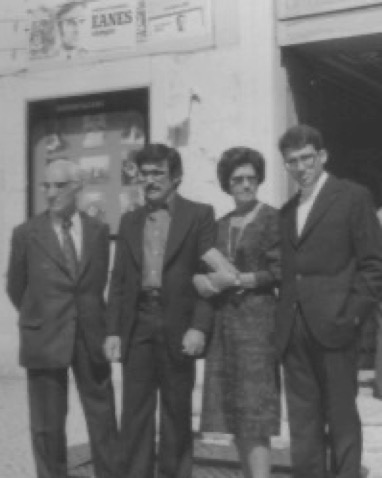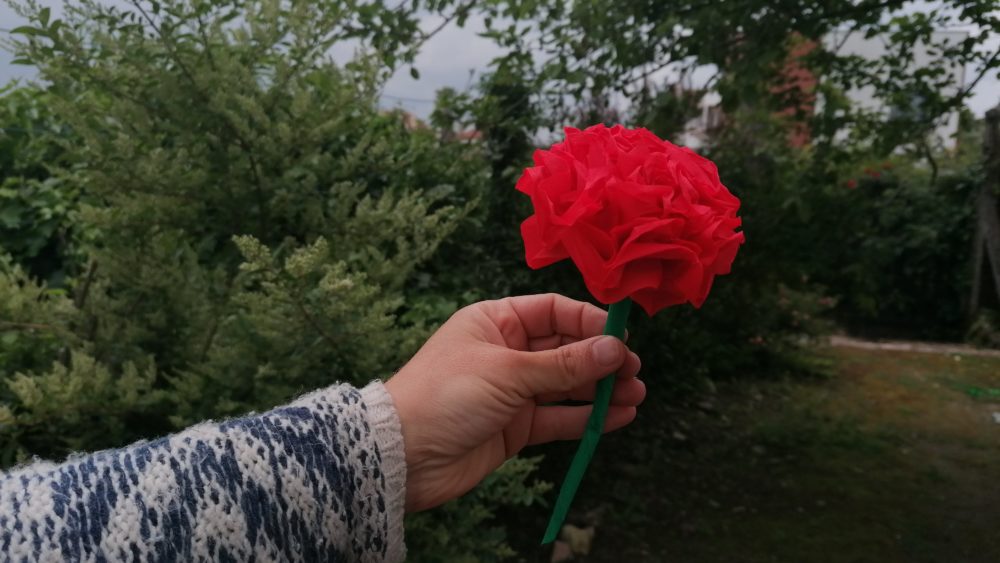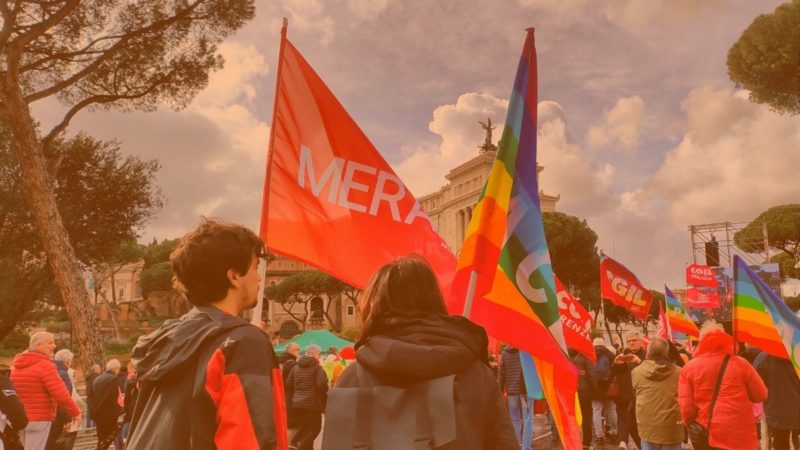I can’t remember a 25th of April without carnations or without a parade at the Av. da Liberdade to celebrate the 1974 revolution. Ever since my dad’s passing, that is the flower I offer him when I celebrate it. However, it wasn’t through my dad that I discovered the reason for such a strong connection to this day.
A day that defined the lives of mine and so many other parents, grandparents and children, of those who witnessed the end of the Salazar dictatorship, the Revolution of the 25th of April and the decade of the 1970s, such a special decade.
It was only today, April 23 2021, that I got Vasco Lourenço, an April Captain, and the Colonel João Andrade da Silva to confirm the truthfulness of these facts.
It goes like this. The Armed Forces Movement, the ones that sparked the Revolution of the 25th of April in Portugal, secretly organised missions that led to the imprisonment of commanders. In a meticulous plan, it was established that the secret signals to activate these missions would be encapsulated through the radio at times and in places agreed in advance.
The first signal broadcast on the radio would become a landmark in Portuguese history and culture with a song that today is still recognised, even by little children. To me, that song strikes a different note.
The first mission was to take place on the 24th April, at 10:55 p.m., at the Escola Prática de Artilharia (EPA), in Vendas Novas. At this time, João Paulo Diniz, radio announcer at the Emissores Associados de Lisboa radio station, declared: “It’s five to eleven. I leave you with Paulo de Carvalho’s E Depois do Adeus (“And After The Farewell”), from the Eurovision Song Contest, 74.
My father’s brother, the then Lieutenant Pedro Manuel Lopes de Sales Grade, was at the Escola Prática de Artilharia (EPA), in Vendas Novas. His bedroom had been chosen by some of the movement’s military officers to wait for the signal: the song E depois do Adeus.
Maybe my uncle, known as the most pacifist amongst the Portuguese army, would want to stay: feeling the importance of his bedroom being chosen as a safe haven for these officers who would become known for the arrest of the Commanders. However, he was exposed to a moment of truth: and he took a risk.
It just so happened that, due to the last minute absence of one of the officers, my uncle was selected to be part of the group of officers who would arrest the two Commanders present.
Thus, it went down in history that Lieutenant Pedro Manuel Lopes de Sales Grade arrested Lieutenant-Colonel João Manuel Pereira do Nascimento, Second-in-command. At the sight of him, the Second-in-command expressed surprise by saying “A Sales Grade is in this as well?!”. My uncle replied: “Circumstances so require, my Commander!”. By some accounts, such an attitude was justified by my uncle’s yoga practice and refusal of any type of violence.

From left to right: Brigadier José Sales Grade (grand-father), José Sales Grade (father), Maria Luísa Sales Grade (grand-mother), Lieutenant Pedro Sales Grade (uncle)
My dad would always tell me a story, one that I can’t dig deeper into with historical facts. According to him, an attempt was made to arrest my grandfather, who was, at the time, a Brigadier. But someone soon realised: “It’s Sales Grade’s father!” And that’s how my grandfather, at the time an already assumed man of the left, managed to escape prison.
No other day can muster up so many emotions as the 25th of April does: the conquest of freedom, of democracy, the beginning of the fight for a fairer society. Such values are ever present in my daily life in family. Having spent years not knowing this story, it would make each and every minute of the 25th April a moment of pride, not just for my uncle, but also for everyone that had the courage to be part of the change, regardless of the risks this entailed.
It is largely that same courage that we live here, at DiEM25.
P.S. My uncle practices yoga to this day, at 74.
Nadia Sales Grade is a member of DiEM25 currently living in Portugal. She’s also the co-coordinator of DiEM Voice, the arts and culture platform of DiEM25.
Do you want to be informed of DiEM25's actions? Sign up here




